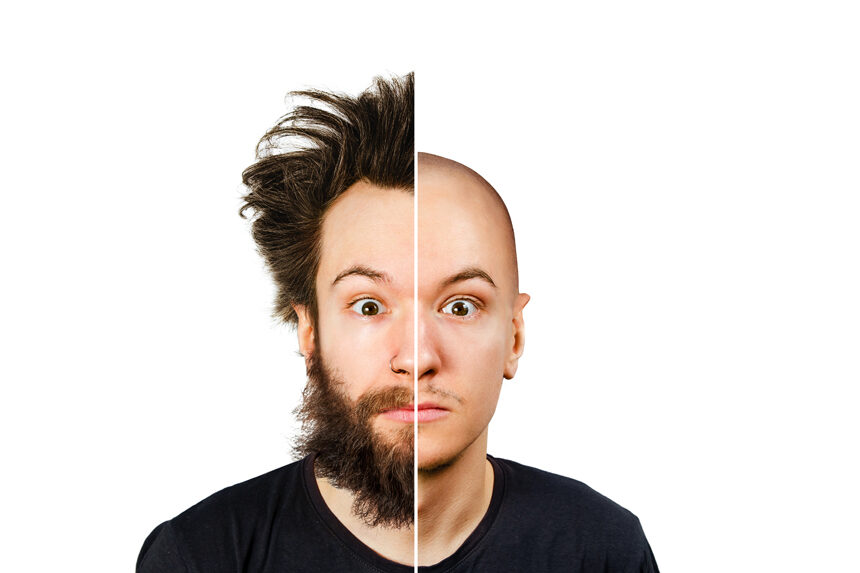Managing editor and logophile Andy Hollandbeck reveals the sometimes surprising roots of common English words and phrases. Remember: Etymology tells us where a word comes from, but not what it means today.
In the novel I’m currently reading, a character was described as looking disheveled. It’s a word I see often enough in print (though I rarely hear it used in casual conversation), but for some reason, I really took notice of it this time.
I recognized the Latinate dis- prefix — which can mean “lack of, opposite of, apart, away” — from words like disaster, discourage, and even discuss. But if you remove the dis- from disheveled, that just leaves heveled, and what in the world could that be?
So I looked into it.
The roots of disheveled, it turns out, are well-hidden because the modern spelling is a result of pronunciation and not etymology. Disheveled (also spelled dishevelled, especially by users of British English), was, in Middle English, sometimes spelled discheveled, hinting at both its French origins and its original meaning.
You might recall, either from high school French class or from glancing at the translation on the back of a shampoo bottle, that the French word cheveux means “hair.” That’s the modern French word, of course; in Old French, the word was chevel (not to be confused with cheval, “horse.”). Now think about what it means to create a verb that combines dis- “lack of, away” and a word meaning “hair.” That verb in Old French was descheveler, literally “to dehair,” that is, to shave one’s head.
But even before the word worked its way among English speakers, discheveler was being used more broadly to refer to putting hair out of order or in disarray. From that verb, English grabbed the participle deschevele, which became discheveled. In the beginning, the “shaved head” and “disarrayed hair” senses were about on even footing, but eventually the “disarrayed” sense became the more prominent. Today, someone with perfectly coiffed hair but whose clothes are in shambles can still be described as disheveled.
Which brings us back to the modern spelling: When pronouncing discheveled at speed, the s followed immediately by the ch sound comes out sounding just like an sh sound, so people started spelling it that way. And the spelling stuck.
Bonus etymological link: French cheveux/chevel can be traced back further to the Latin word for “hair,” capillus, which is also the root of the word capillary: thin, “hair-like” blood vessels.
Become a Saturday Evening Post member and enjoy unlimited access. Subscribe now




Comments
Interesting history of that word, ‘disheveled’. It just sounds like what it would mean, and does.